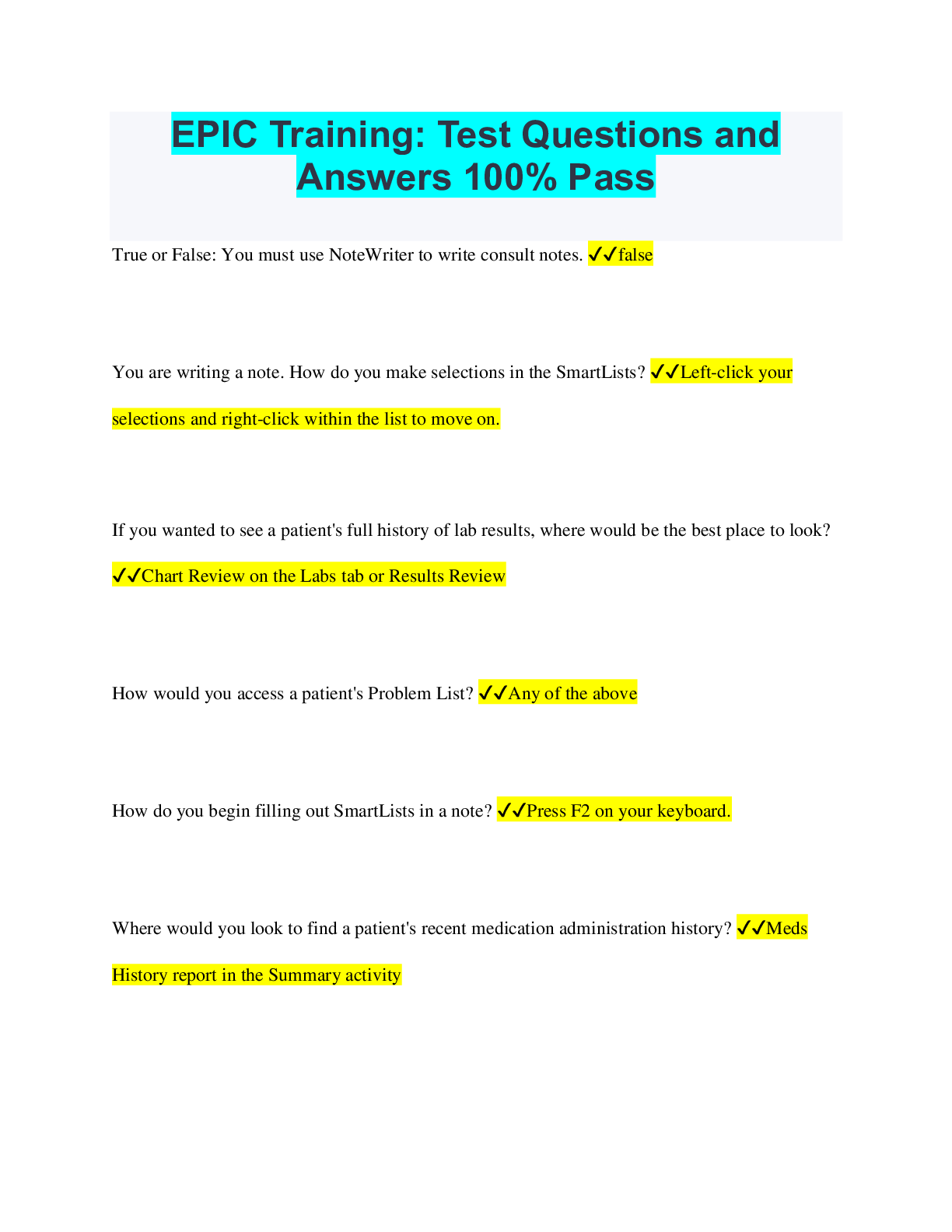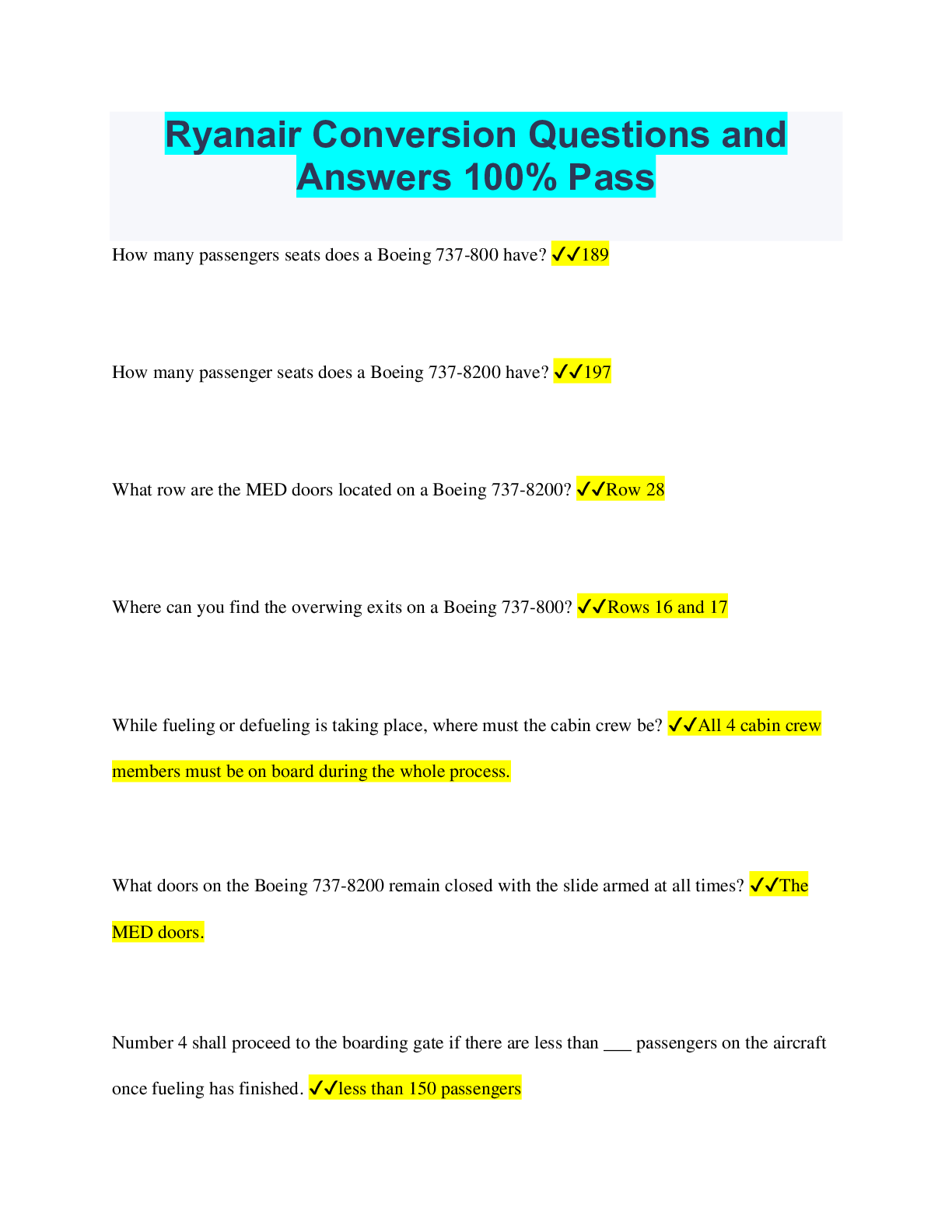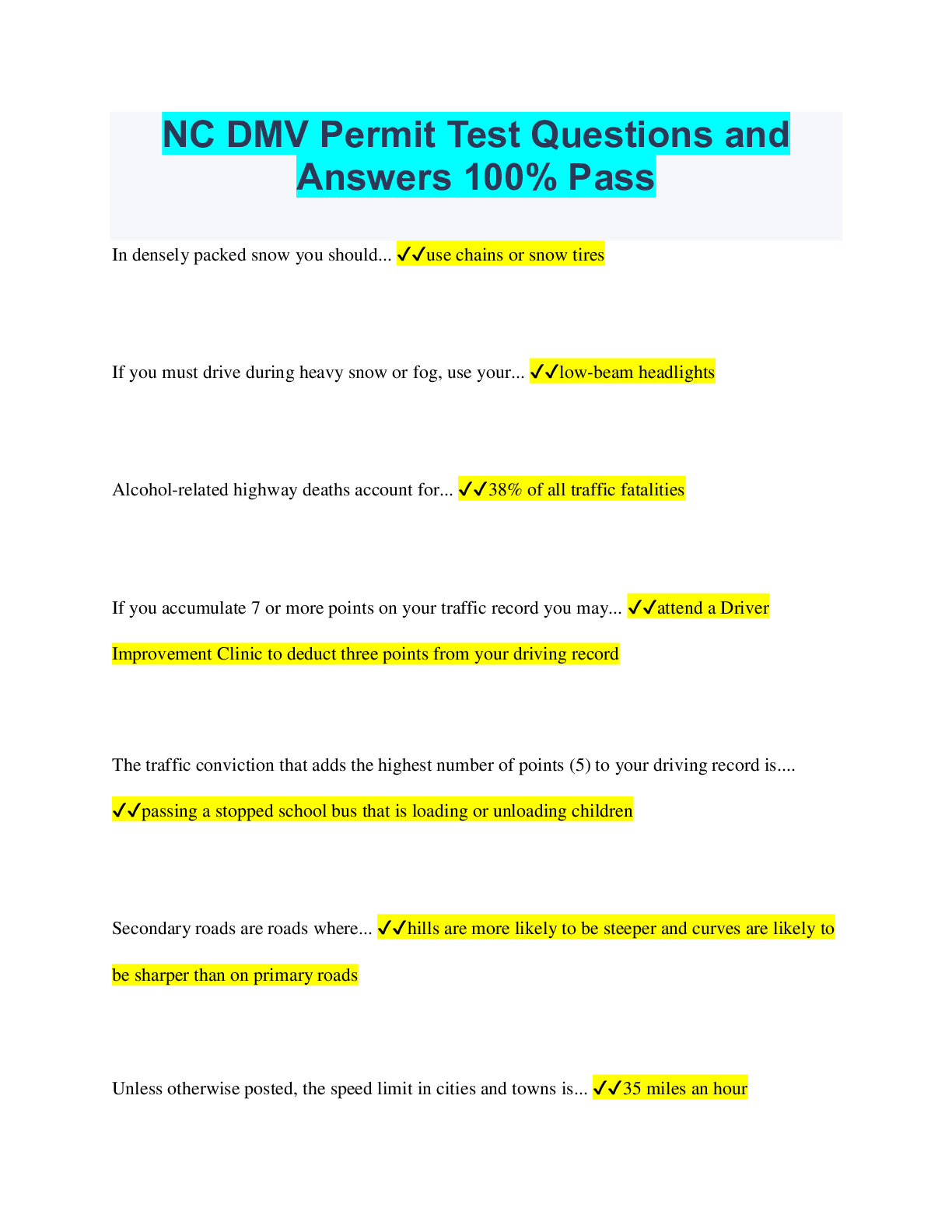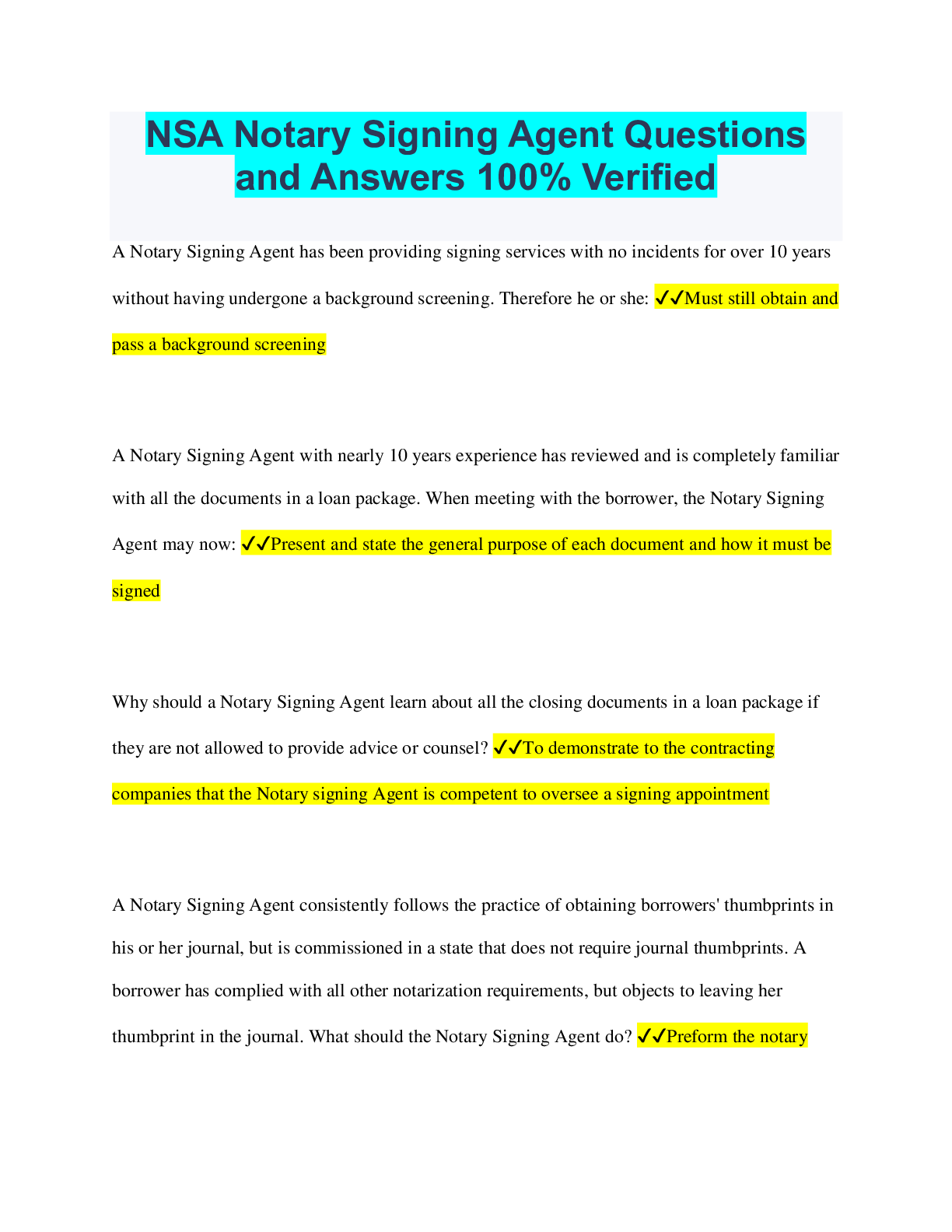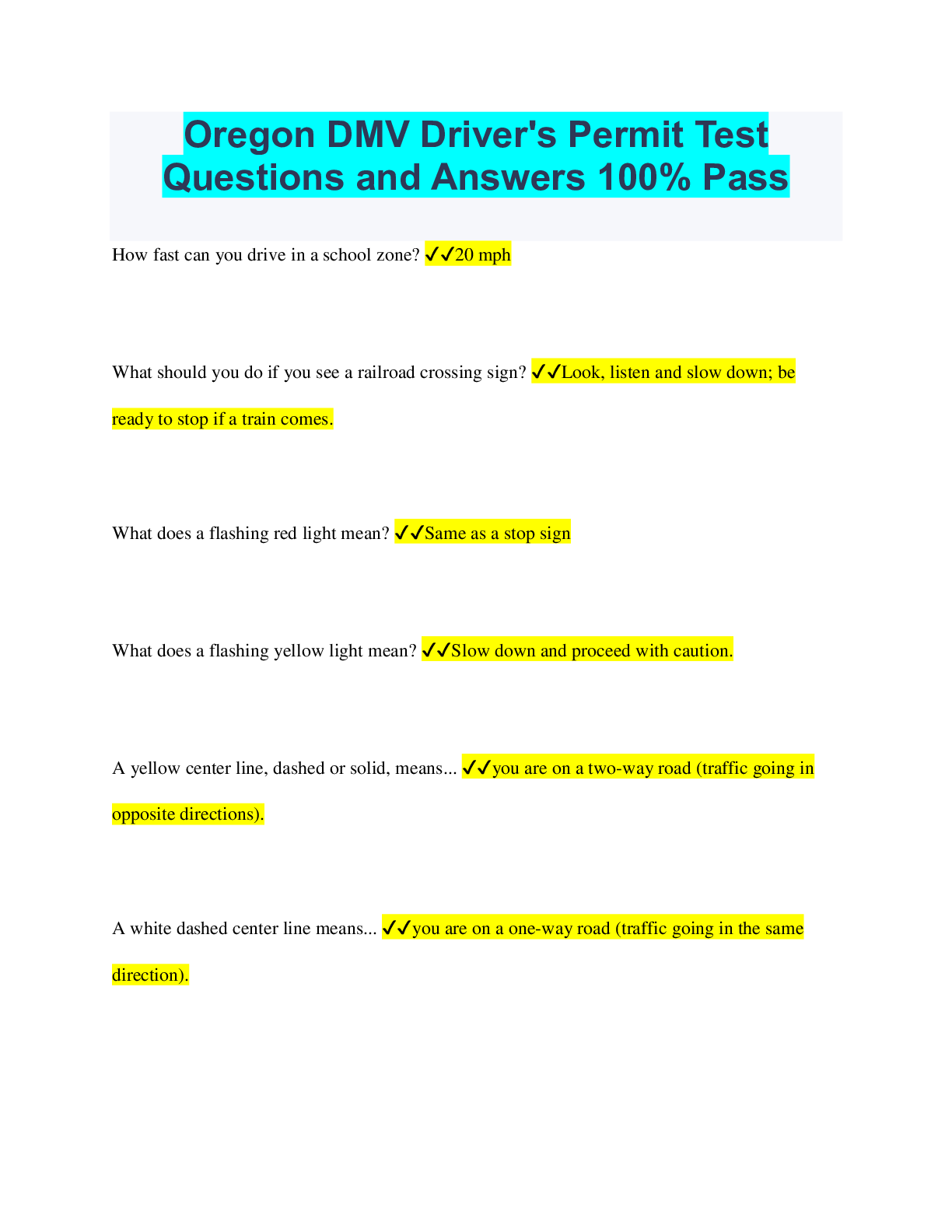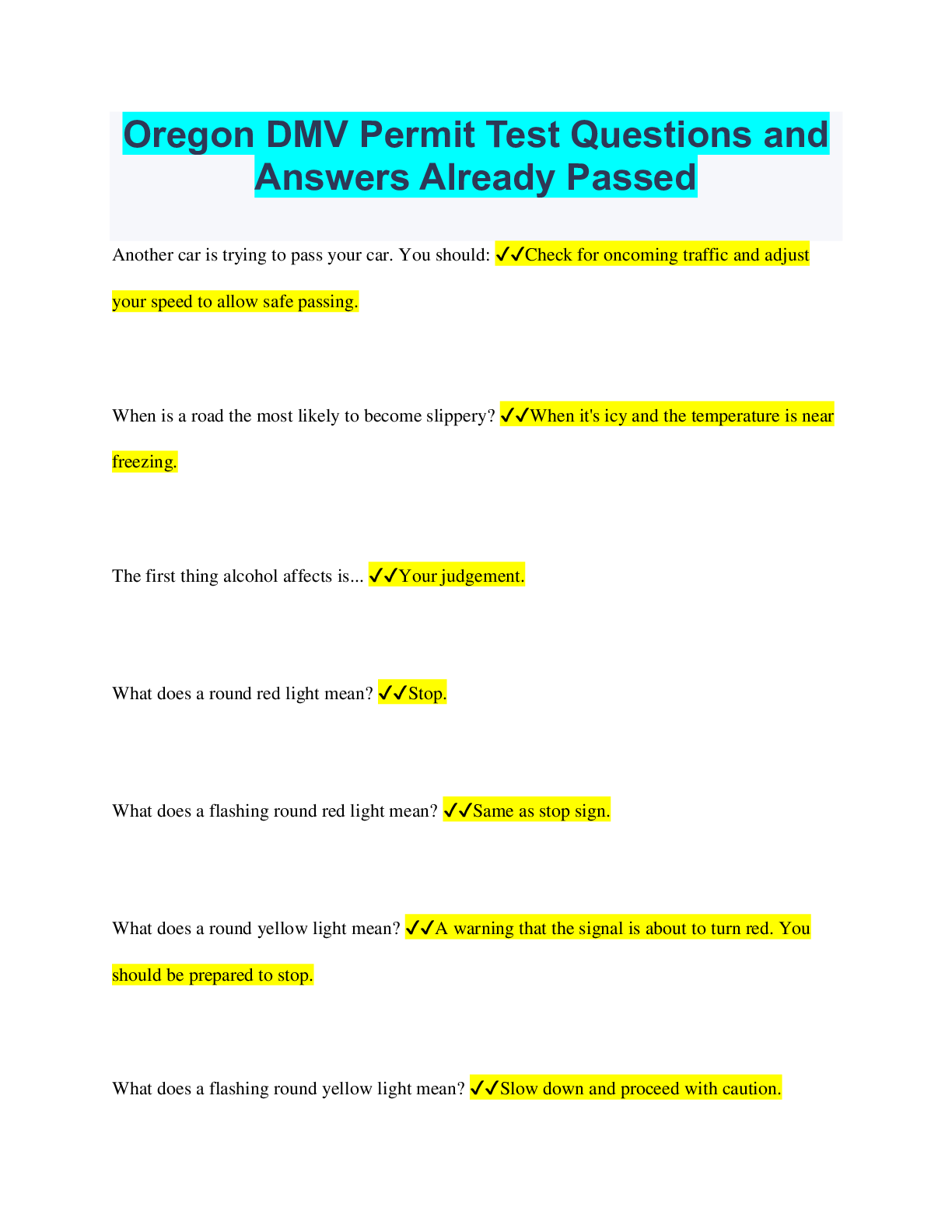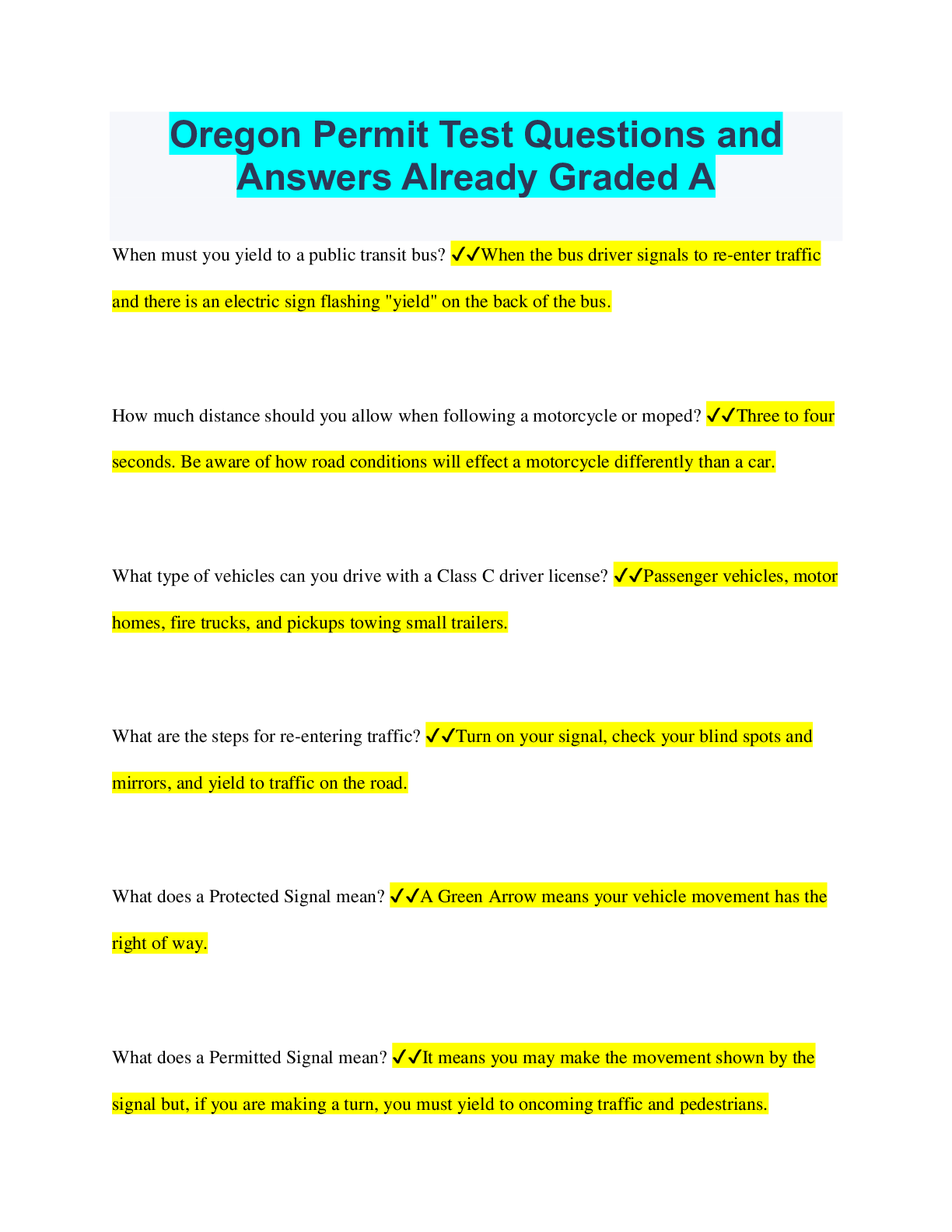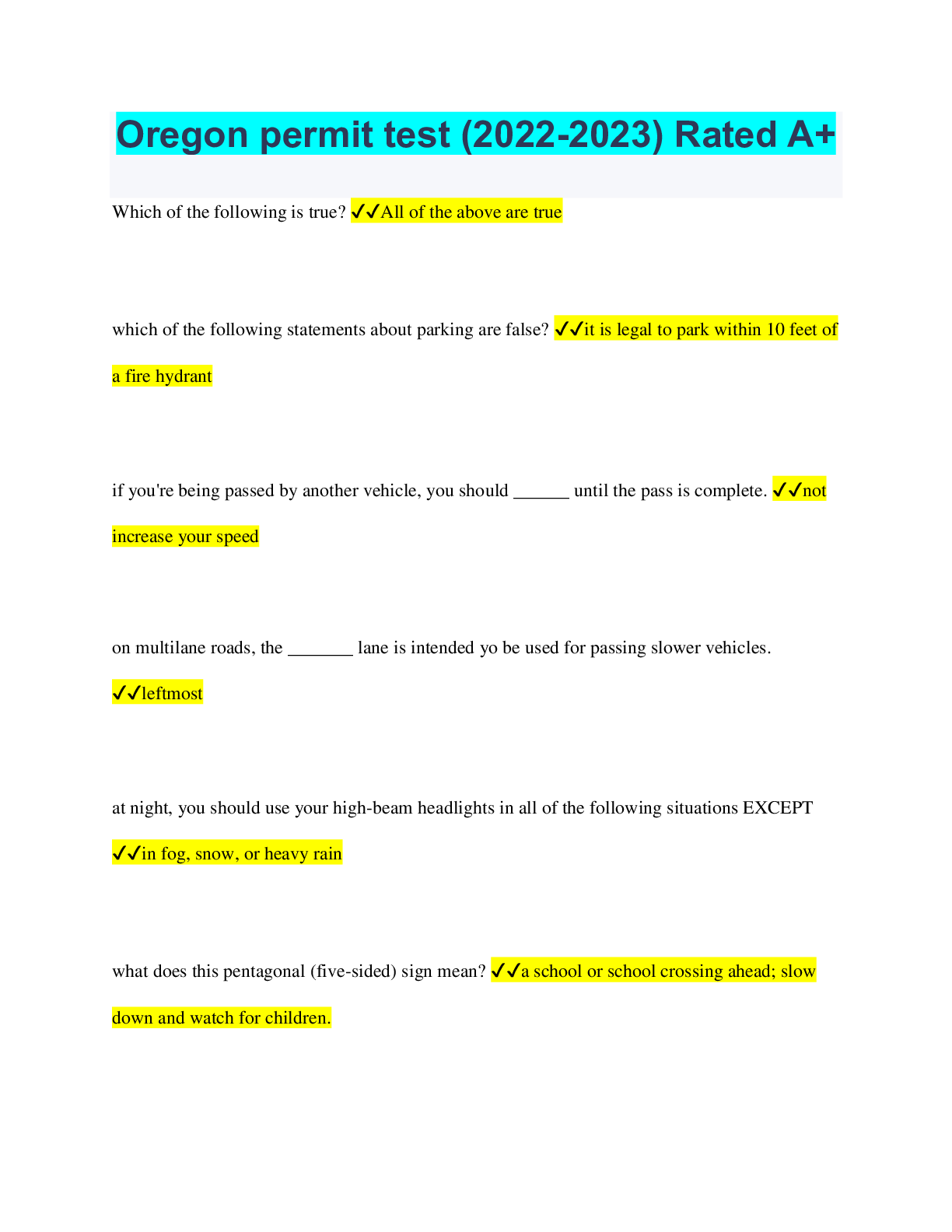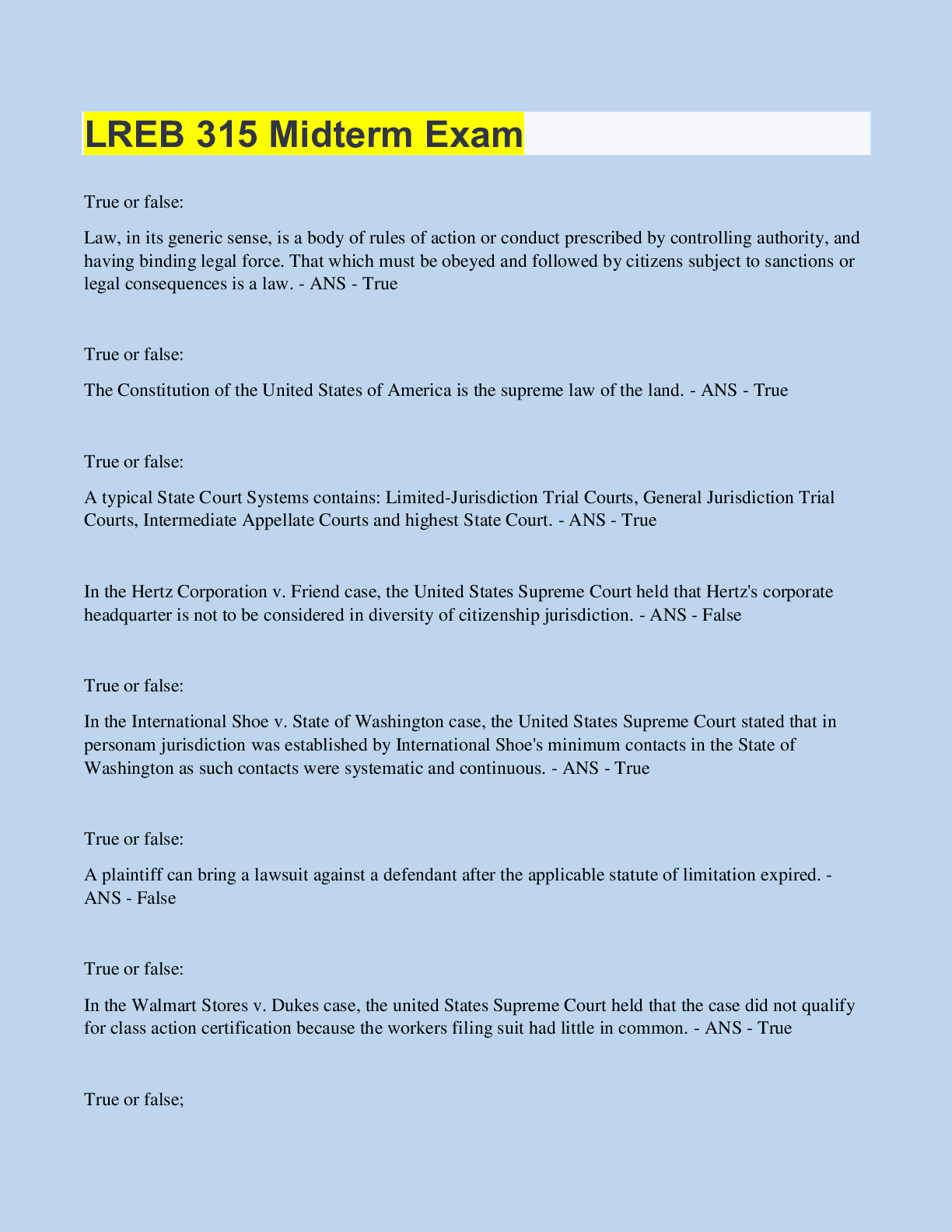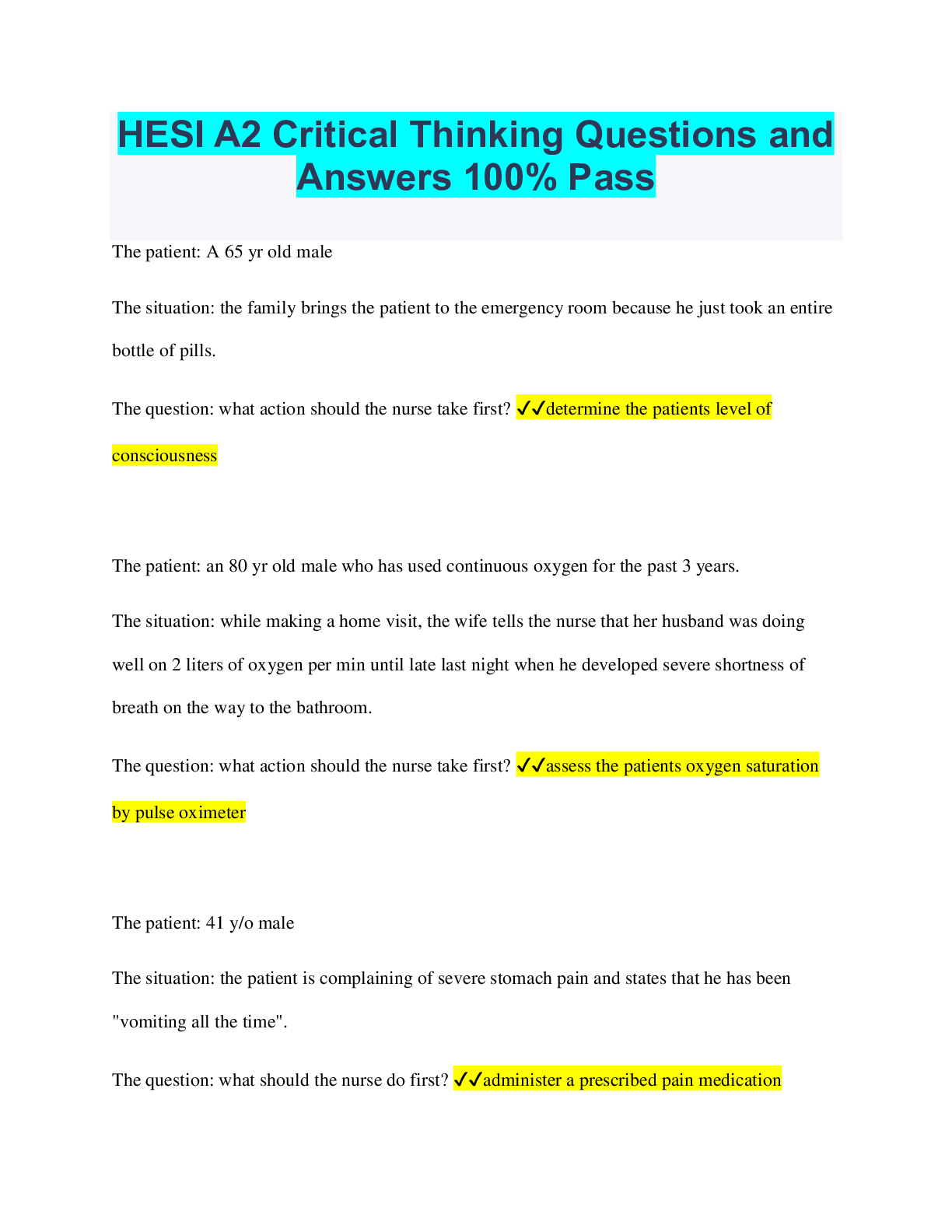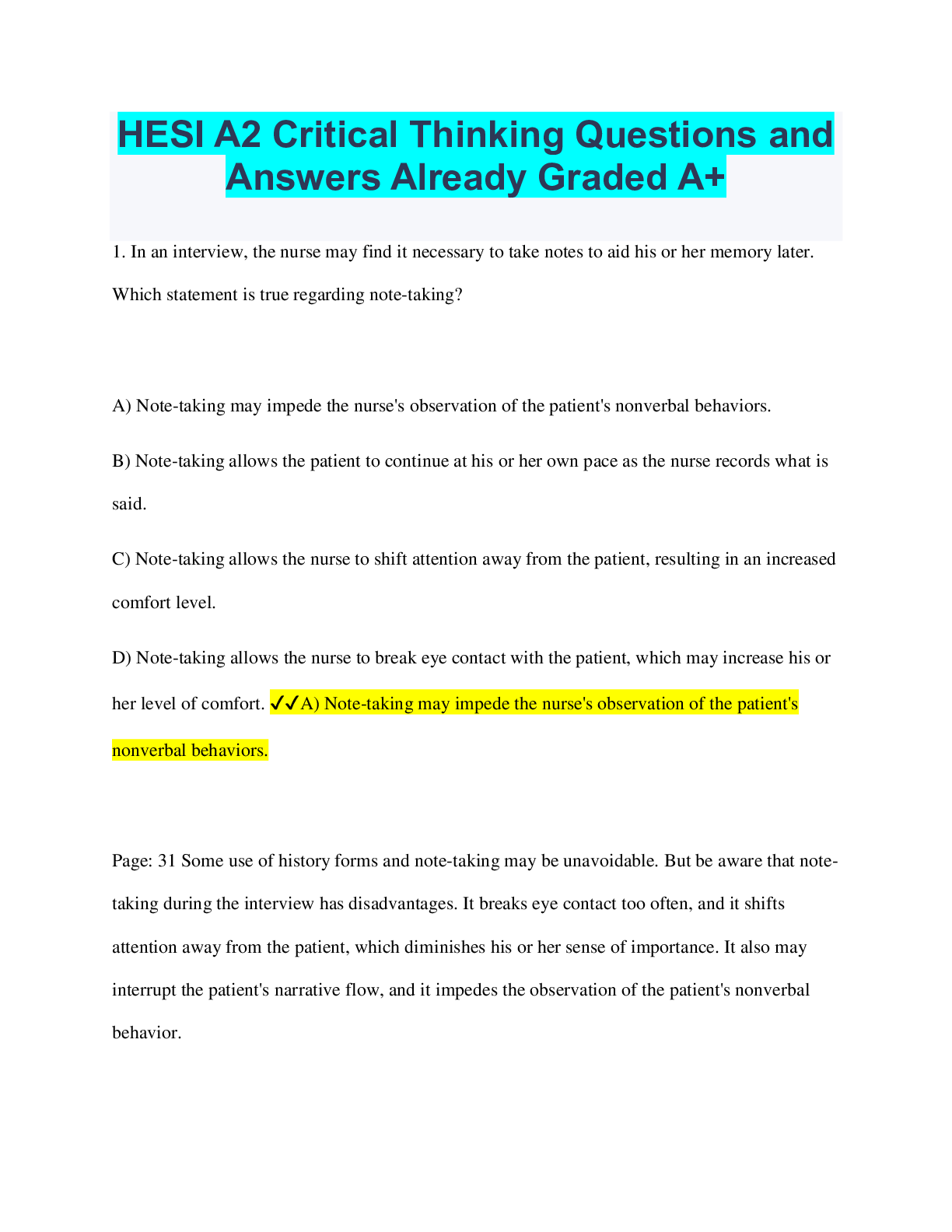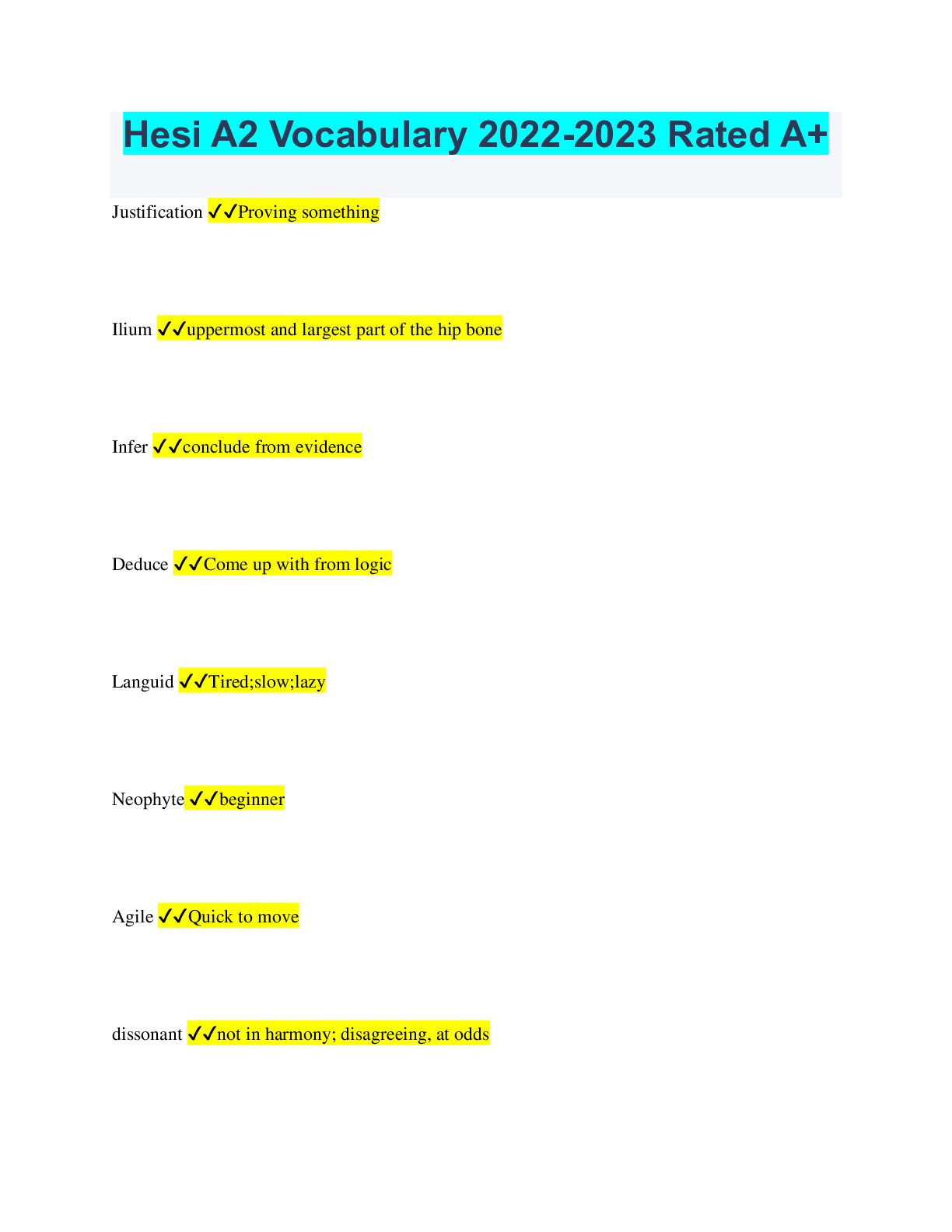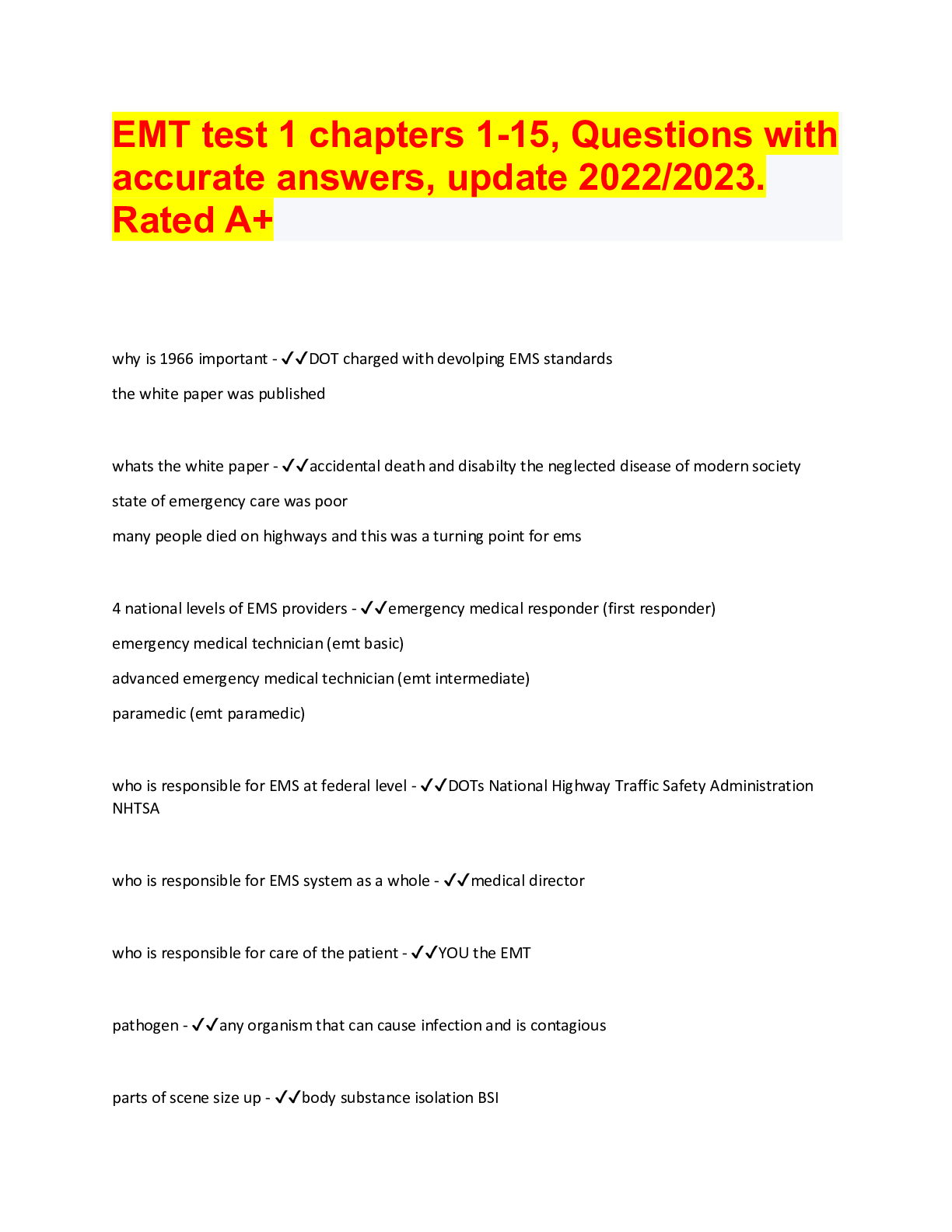Health Care > QUESTIONS & ANSWERS > Health Assessment Test 1 Chapters 1-4 (All)
Health Assessment Test 1 Chapters 1-4
Document Content and Description Below
Health Assessment Test 1 Chapters 1-4 1. After completing an initial assessment of a patient, the nurse has charted that his respirations are eupneic and his pulse is 58 beats per minute. These type... s of data would be: a. Objective. b. Reflective. c. Subjective. d. Introspective. - ✔✔a. Objective. Objective data are what the health professional observes by inspecting, percussing, palpating, and auscultating during the physical examination. Subjective data is what the person says about him or herself during history taking. The terms reflective and introspective are not used to describe data. 2. A patient tells the nurse that he is very nervous, is nauseated, and "feels hot." These types of data would be: a. Objective. b. Reflective. c. Subjective. d. Introspective. - ✔✔c. Subjective. Subjective data are what the person says about him or herself during history taking. Objective data are what the health professional observes by inspecting, percussing, palpating, and auscultating during the physical examination. The terms reflective and introspective are not used to describe data. 3. The patient's record, laboratory studies, objective data, and subjective data combine to form the: a. Data base. b. Admitting data. c. Financial statement. d. Discharge summary. - ✔✔ANS: A Together with the patient's record and laboratory studies, the objective and subjective data form the data base. The other items are not part of the patient's record, laboratory studies, or data. 4. When listening to a patient's breath sounds, the nurse is unsure of a sound that is heard. The nurse's next action should be to: a. Immediately notify the patient's physician. b. Document the sound exactly as it was heard. c. Validate the data by asking a coworker to listen to the breath sounds. d. Assess again in 20 minutes to note whether the sound is still present. - ✔✔ANS: C When unsure of a sound heard while listening to a patient's breath sounds, the nurse validates the data to ensure accuracy. If the nurse has less experience in an area, then he or she asks an expert to listen. 5. The nurse is conducting a class for new graduate nurses. During the teaching session, the nurse should keep in mind that novice nurses, without a background of skills and experience from which to draw, are more likely to make their decisions using: a. Intuition. b. A set of rules. c. Articles in journals. d. Advice from supervisors. - ✔✔ANS: B Novice nurses operate from a set of defined, structured rules. The expert practitioner uses intuitive links. 6. Expert nurses learn to attend to a pattern of assessment data and act without consciously labeling it. These responses are referred to as: a. Intuition. b. The nursing process. c. Clinical knowledge. d. Diagnostic reasoning. - ✔✔ANS: A Intuition is characterized by pattern recognition—expert nurses learn to attend to a pattern of assessment data and act without consciously labeling it. The other options are not correct. 7. The nurse is reviewing information about evidence-based practice (EBP). Which statement best reflects EBP? a. EBP relies on tradition for support of best practices. b. EBP is simply the use of best practice t [Show More]
Last updated: 2 years ago
Preview 1 out of 23 pages
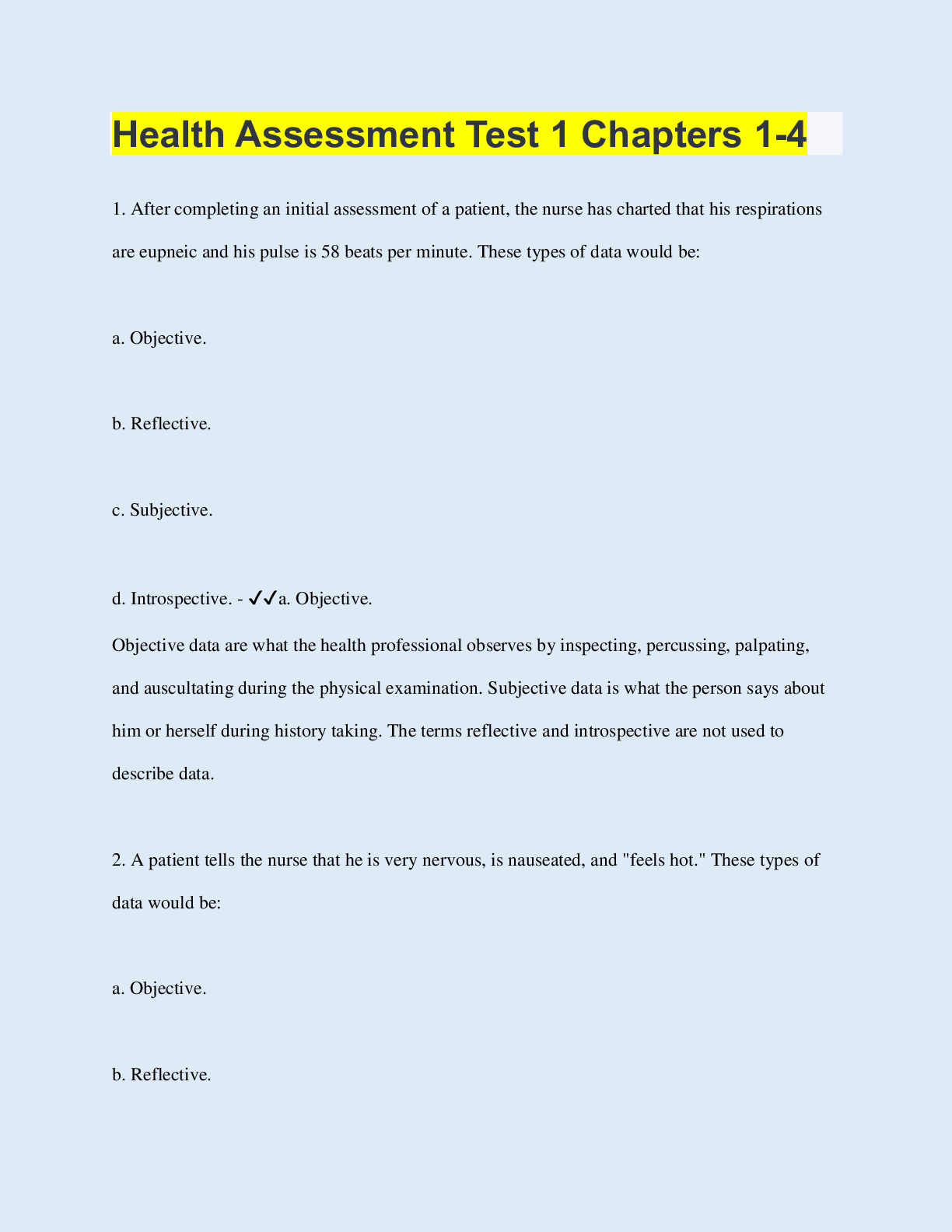
Buy this document to get the full access instantly
Instant Download Access after purchase
Buy NowInstant download
We Accept:

Reviews( 0 )
$10.00
Can't find what you want? Try our AI powered Search
Document information
Connected school, study & course
About the document
Uploaded On
May 14, 2023
Number of pages
23
Written in
Additional information
This document has been written for:
Uploaded
May 14, 2023
Downloads
0
Views
120

